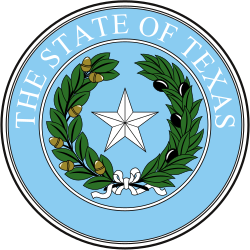| |||||||||||||||||||||||||||||||||||||||||
16 of the 31 seats in the Texas Senate 16 seats needed for a majority | |||||||||||||||||||||||||||||||||||||||||
|---|---|---|---|---|---|---|---|---|---|---|---|---|---|---|---|---|---|---|---|---|---|---|---|---|---|---|---|---|---|---|---|---|---|---|---|---|---|---|---|---|---|
| |||||||||||||||||||||||||||||||||||||||||
 Senate results by district Republican hold Democratic hold Republican gain No election | |||||||||||||||||||||||||||||||||||||||||
| |||||||||||||||||||||||||||||||||||||||||
| Elections in Texas |
|---|
 |
The 2006 Texas Senate election was held on Tuesday, November 7, 2006.
Contents
- Predictions
- Summary of Results
- Results by district
- Detailed results
- District 1
- District 2
- District 3
- District 5
- District 7
- District 8
- District 12
- District 13
- District 14
- District 15
- District 17
- District 18
- District 19
- District 22
- District 25
- District 29
- References
Fifteen of the sixteen elections for the Texas Senate were contested to some extent. The winners of this election served in the 80th Texas Legislature. Five Senators chose to not run or were defeated in the primaries.
